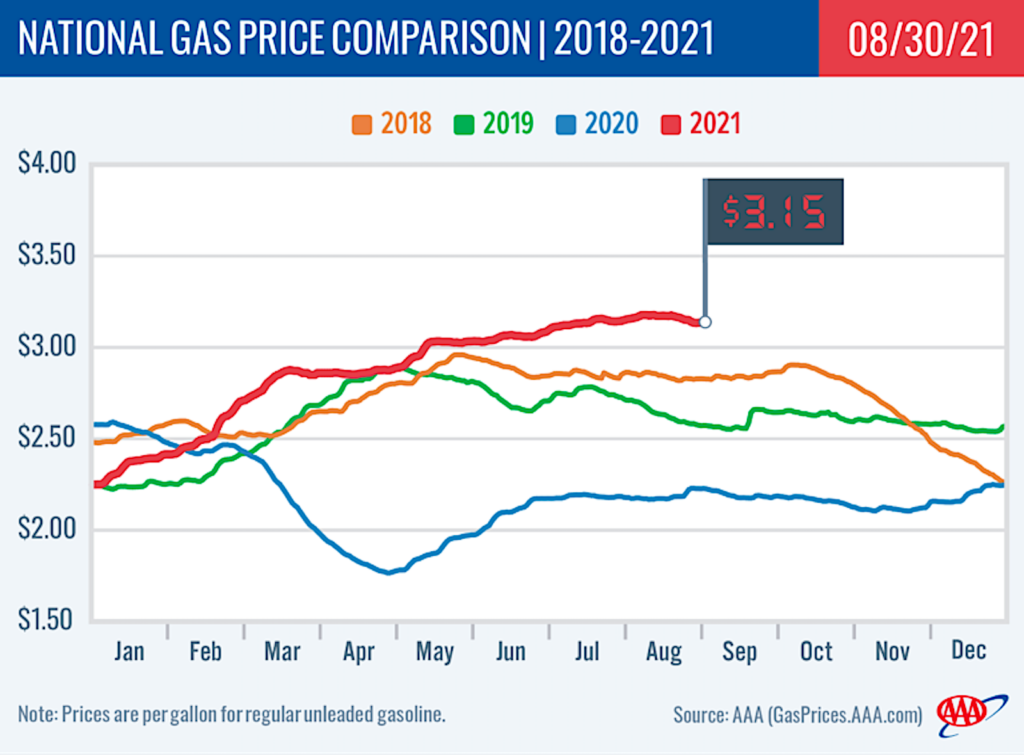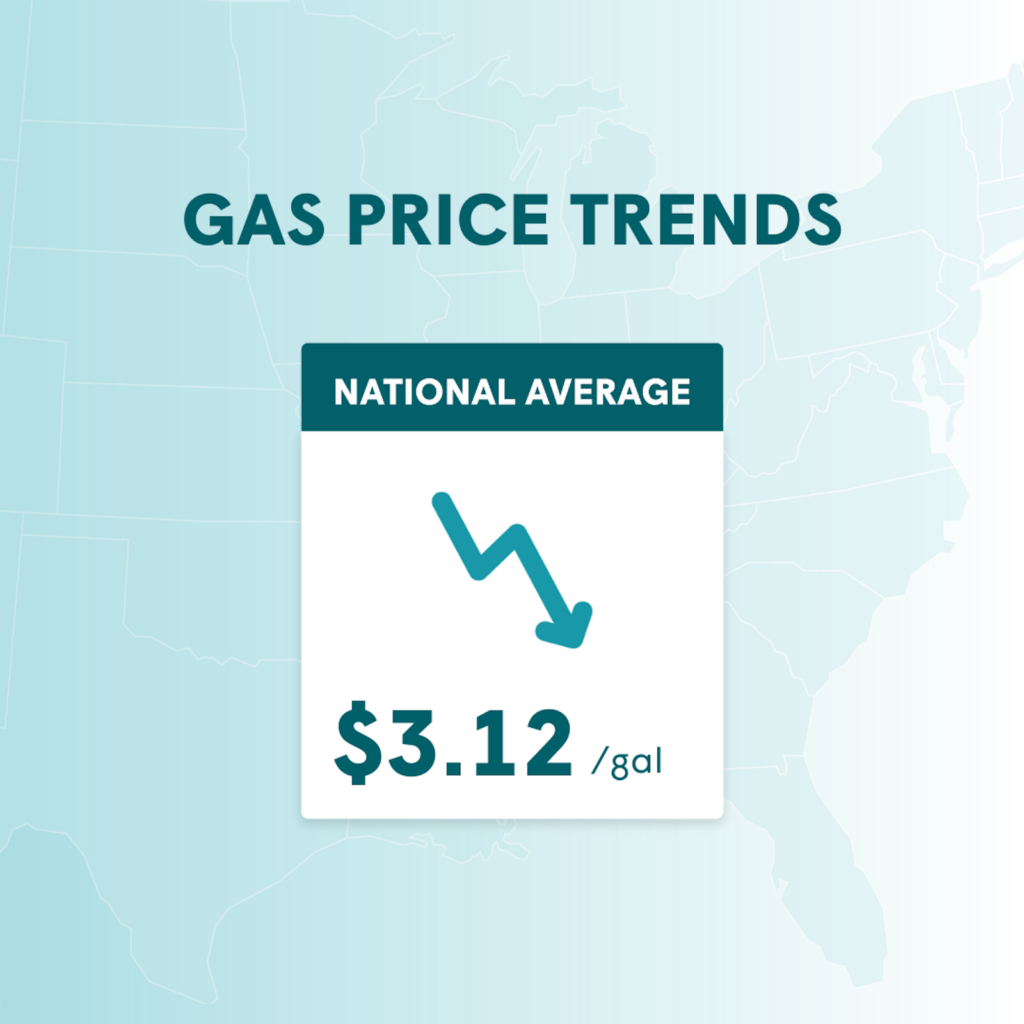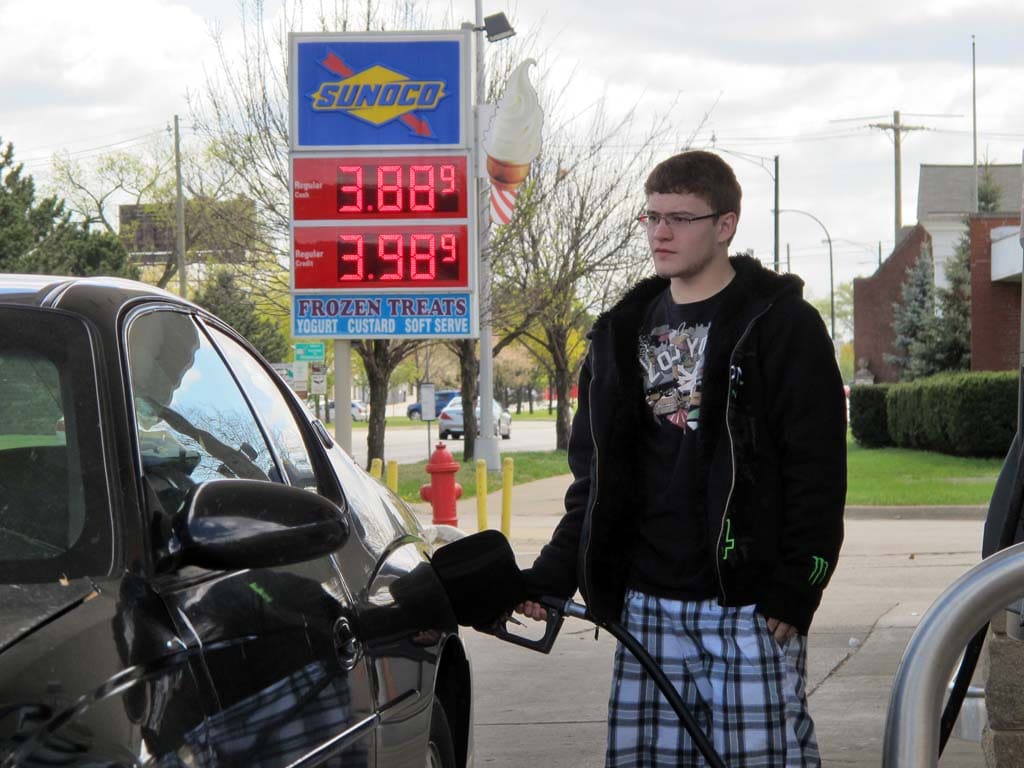Motorists across the U.S. are paying a bit less to gas up Tuesday than they did a week ago, a welcome downturn — but it could be a short-lived one.

As of Sunday, prices at the pump had tumbled an average 2 cents for a gallon of regular compared to a week before. But the numbers started heading back up in the wake of Hurricane Ida, according to AAA, with experts warning that even bigger increases could follow as a result of the storm which, at least temporarily, knocked out 95% of the crude oil output from the Gulf Coast.
Ida impacted everything from wells to refineries in the region, and with power out to more than 2 million utility customers, it may take a while for the region’s petroleum industry to recover.
“Until the power is restored, it’s too early to know the full impact of any damage Ida caused on the oil and gas industry, but motorists regionally can expect price fluctuations leading into Labor Day weekend,” said Jeanette McGee, AAA spokesperson. “Typically, a Category 4 storm could mean three plus weeks before refineries are back to normal operations, while offshore production is more likely to resume this week.”
Hasty evacuations
Workers were evacuated from hundreds of oil and gas platforms dotting the Gulf, Reuters reported Monday, leading to the suspension of production of around 1.72 million barrels of petroleum a day. About 13% of U.S. refining capacity was offline, as well.

Colonial Pipeline, meanwhile, shut down two main lines running from Houston to Greensboro, North Carolina as a precaution as the hurricane approached landfall Sunday. That company was hit by a ransomware attack earlier this year, leading to fuel shortages on the East Coast sharply driving up prices. But Colonial’s move was expected to be temporary.
“Gas prices nationally, especially in the southeast and east coast, will see minimal impact at the pump if the pipeline is down for a matter of hours versus days,” AAA said. And other experts said that, despite the intensity of the storm, the impact may not last long, at least outside the areas directly hit by what came ashore as a Category 4 hurricane with sustained wins topping 150 mph.
But not everyone is so optimistic.
A short-lived downturn
“In the past when we’ve had hurricanes blow over refineries, it’s been a week or two … but this was a Category 4 storm when it made landfall,” Stewart Glickman, energy equity analyst at CFRA Research, told NBCNews. “So, I do think gasoline prices are going to be moving up. It wouldn’t shock me if they were up, on average, 10 cents a gallon.”
Patrick De Haan, the closely followed petroleum analyst with GasBuddy.com, thinks the post-Ida spike could be even more substantial, ending the first real downturn in pump prices motorists have experienced since late spring.

“We’re likely to see a reversal this week,” De Haan said. “I expect the national average to rise in the neighborhood of 5-15 cents per gallon in the next couple of weeks — far smaller than the impact from Hurricanes Katrina and Harvey, but with damage assessments still to come, it’s possible we see slight deviation from that.”
Several issues could bring even higher spikes, according to De Haan, and there may be no clear sense of what’s to come until it’s seen whether key Gulf-region refineries were damaged by flooding, a potentially serious scenario.
Dodging the bullet
The petroleum industry — and, with it, U.S. motorists — appears to have dodged what could have been a much worse crisis. Ida hit hard, but it also hit well to the east of where much of the key energy infrastructure is based along the Gulf Coast, notably in Texas.
There’ve also been some important changes since Katrina came ashore, precisely 15 years to the day before Ida made landfall. Most notably, experts said, the U.S. petroleum energy has significantly diversified, with natural gas coming from wells across the country, and numerous new sources for petroleum, as well. As a result, the impact of even a major hurricane is less likely to result in serious shortages of crude oil or refined products like gasoline.

